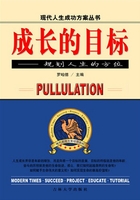The right of the landowners can be traced back to robbery. [Say, I, p. 136, n.2] Landowners, like all other men, love to reap where they never sowed, and demand a rent even for the natural produce of the land. [Smith, I, p. 44]
"The rent of land, it may be thought, is frequently no more than a reasonable profit or interest for the stock laid out by the landlord upon its improvement. This, no doubt, may be partly the case upon some occassions.... The landlord demands a rent even for unimproved land, and the supposed interest or profit upon the expense of improvement is generally an addition to this original rent. Those improvements, besides, are not always made by the stock of the landlord, but sometimes by that of the tenant. When the lease comes to be renewed, however, the landlord commonly demands the same augmentation of rent as if they had been all made by his own.
"He sometimes demands rents for what is altogether incapable of human improvements."
[ Smith, I, p. 131 ] Smith gives as an example of this last case, kelp, a species of seaweed which, when burnt, yields an alkaline salt useful for making glass,soap, etc. It grows in several parts of Great Britain, especially in Scotland, but only upon such rocks as lie within the high water mark, which are twice every day covered with the sea and of which the produce, therefore, was never augmented by human industry. The landlord, however, whose estate is bounded by a kelp shore of this kind, demands a rent for it as much as for his corn fields. The sea in the neighborhood of the islands of Shetland is more than commonly abundant in fish, which make a great part of the subsistence of their inhabitants. But in order to profit by the produce of the water, they must have a habitation on the neighboring land. The rent of the landlord is in proportion, not to what the farmer can make by the land, but by what he can make both by the land and by the water.
"This rent may be considered as the produce of those power, the use of which the landlord lends to the farmer. It is greater or smaller according to the supposed extent of those powers, or in other words, according to the supposed natural of improved fertility of the land. It is the work of nature which remains after deducting or compensation everything which can be regarded as the work of man."
[ Smith, I, pp. 324-5 ]
"The rent of land, therefore, considered as the price paid for the use of land, is naturally a monopoly price. It is not at all proportioned to what the landlord may have laid out upon the improvement of the land, or to what he can afford to take; but to what the farmer can afford to give."
[ Smith, I, p. 131 ]
"They [landlords] are the only ones of the three orders whose revenue costs them neither labor nor care, but comes to them, as it were, of its own accord, and independent of any plan or project of their own.
[ Smith, I, p. 230 ] We have already seen how the volume of rent depends upon the degree of fertility of the land.
"The rent of land not only varies with its fertility, whatever be its produce, but with its situation, whatever be its fertility."
[ Smith, I, p. 133 ]
"The produce of lands, mines, and fisheries, when their natural fertility is equal, is in proportion to the extent and proper application of the capitals employed about them. When the capitals are equal and equally well applied, it is in proportion to their natural fertility."
[ Smith, I, p. 249 ] These proportions of Smith are important, because they reduce the rent land, where costs of production and size are equal, to the degree of fertility of the soil. This clearly demonstrates the perversion of concepts in political economy, which turns the fertility of the soil into an attribute of the landlord.
But let us now examine the relation between landlord and tenant.
"In adjusting the terms of the lease, the landlord endeavors to leave him no greater share of the product than what is sufficient to keep up the stock from which he furnishes the seed, pays the labor, and purchases and maintains the cattle and other instruments of husbandry, together with the ordinary profits of farming stock in the neighborhood. This is evidently the smallest share with which the tenant can content himself without being a loser, and the landlord seldom means to leave him any more. Whatever part of the produce, or, what is the same thing, whatever part of the price is over and above this share, he naturally intends to reserve himself as the rent of his land, which is evidently the highest the tenant can afford to pay in the actual circumstances of the land.... This portion... may still be considered as the natural rent of land, or the rent for which it is actually meant that land should for the most part be let."
[ Smith, I, p. 130-31 ]
"The landlords," says Say, "operate a certain kind of monopoly against the tenants. The demands for their commodity, which is land, is capable of an infinite expansion; but the supply can only increase up to a certain point.... The agreement reached between landlord and tenant is always as advantageous as possible to the former.... Apart from the advantage which he derives from the nature of the case, he derives a further one from his position, his larger fortune, his credit and his standing; but the first of these advantages is in itself enough to enable him at all times to profit from the favorable circumstances of the land. The opening of a canal or road and a growth in population and prosperity in a canton always raise the price of the rent.... What is more, even if the tenant makes improvement on his plot of land at his own expense, he can only benefit from this capital for the duration of his lease; when his lease runs out, this capital remains in the hands of the landlord. From this moment on, it is the latter who reaps the interest, even though it was not he who made the original outlay; for now the rent is raised proportionately."
[ Say, II, pp. 142-3 ]















